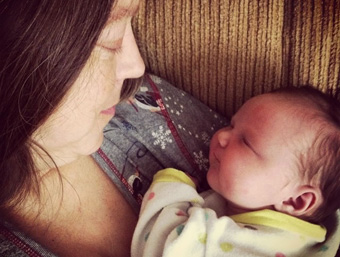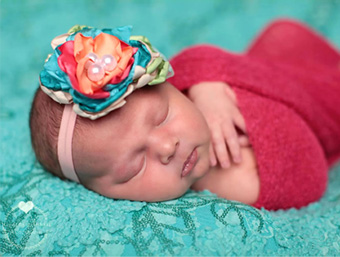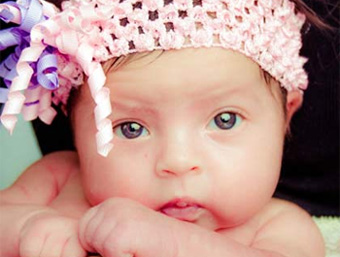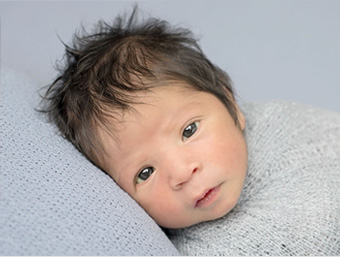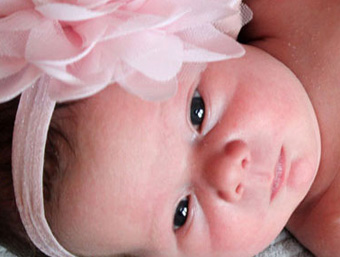 Any pregnancy can have a genetic abnormality. With increasing age the risk of a genetic abnormality increases. As a result, older mothers may have more of a need to consider genetic testing in pregnancy.
Any pregnancy can have a genetic abnormality. With increasing age the risk of a genetic abnormality increases. As a result, older mothers may have more of a need to consider genetic testing in pregnancy.
This article provides basic information on genetic testing for our patients who become pregnant after having their tubes untied. This is a continuation of our series by the tubal reversal doctors at A Personal Choice dedicated to women over the age of 40 who are considering tubal ligation reversal.
Pregnancy And Tubal Reversal: What Genetic Tests Are Available?
Tubal reversal results in pregnancy for most women and these women may be offered genetic testing of some type during pregnancy. Prenatal detection of genetic abnormalities is not 100% perfect but can be close.
There are 2 types of tests: screening tests and diagnostic tests.
Screening Tests After Tubes Untied
If a screening test is abnormal, this means there may be a problem. Abnormal screening tests have to be confirmed with a diagnostic test, because diagnostic tests are more accurate – but also more invasive. If a diagnostic test is abnormal, then very likely a genetic abnormality is present.
Diagnostic Tests After Untying Tubes
Since diagnostic tests are more accurate, many physicians will encourage patients at higher risk for genetic abnormalities to start directly with these test. Most lower risk women are encouraged to start with a screening test; however, any pregnant woman has the right to have a diagnostic test for genetic abnormalities.
Diagnostic tests are more invasive. The risk of losing a pregnancy because of the test, therefore, is higher than after a screening test.
After Tubal Ligation Reversal: Available Genetic Testing
First Trimester Nuchal Translucency Testing
Chorionic Villus Testing (CVS)*
Second trimester Amniocentesis*
Serum Screening
Second Trimester Ultrasound
Tests marked by * are diagnostic tests
First Trimester Nuchal Translucency Testing
 The most recently developed test is nuchal translucency testing. This test offers a great advantage because it is very accurate and allows testing to be done earlier than other tests. This test is a combination ultrasound evaluation of the early embryo (between 11 and 14 weeks gestation) and maternal blood test.
The most recently developed test is nuchal translucency testing. This test offers a great advantage because it is very accurate and allows testing to be done earlier than other tests. This test is a combination ultrasound evaluation of the early embryo (between 11 and 14 weeks gestation) and maternal blood test.
The ultrasound measures the thickness of the skin on the back of the neck of the early embryo. Embryos with thicker neck skin are at higher risk for many abnormalities, but most commonly Down’s Syndrome, heart defects, and early pregnancy loss.
The blood test measures hormones in the mother’s blood, which can be elevated with Down’s Syndrome pregnancies.
If this test is abnormal, then the doctor will very likely recommend a diagnostic CVS or amniocentesis.
Chorionic Villus Testing
 This is a diagnostic test performed between 12-16 weeks gestation.
This is a diagnostic test performed between 12-16 weeks gestation.
This test involves inserting a very fine tube into the uterus and removing a small portion of the early placenta. The cells are then grown in a lab and the chromosomes are evaluated to see if they are abnormal.
Serum Screening Testing
This is a blood test from the mother and is performed between 16-21 weeks gestation. The test evaluates for the most common trisomies and for spina bifada. Prior to First Trimester Nuchal Translucency testing, this was the most common genetic screening test available.
Amniocentesis
 Amniocentesis is a diagnostic test performed between 16- 40 weeks gestation.
Amniocentesis is a diagnostic test performed between 16- 40 weeks gestation.
During this test, the doctor inserts a small needle through the mother’s abdomen and into the uterus under ultrasound guidance and withdraws a small amount of amniotic fluid. This fluid contains embryonic and placental cells. The cells are grown in a lab and the chromosomes in the cells are then examined for genetic abnormalities.
Second Trimester Ultrasound
This is a screening test performed between 18-40 weeks gestation. This test is also referred to as a Level 2 ultrasound.
This ultrasound has to be done by a trained specialist who can closely evaluate the fetal anatomy to look for any signs of a birth defect. If the ultrasound reveals any serious abnormalities suggestive of genetic problems, then the doctor will likely recommend an amniocentesis.
Pregnancy After Tubes Untied…
Our next two articles for women trying to conceive after having their tubes untied (tubal ligation reversal) will discuss the risks of pregnancy to anyone in both the early and late stages of pregnancy. The next article in this series is After Tubal Reversal: Risks Of Early Pregnancy In Older Women.
Our next patient centered story is about Susan. Susan traveled to us from the United Arab Emirates for both tubal reversal and ovarian cyst surgery: International Tubal Reversal: Age 40.
Submitted by Dr. Charles Monteith


